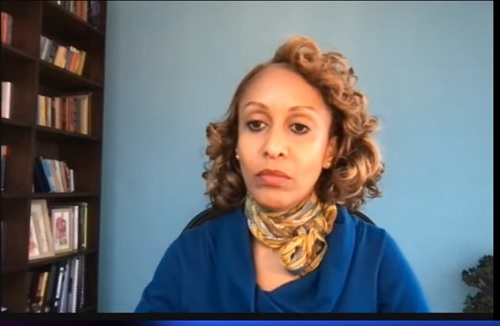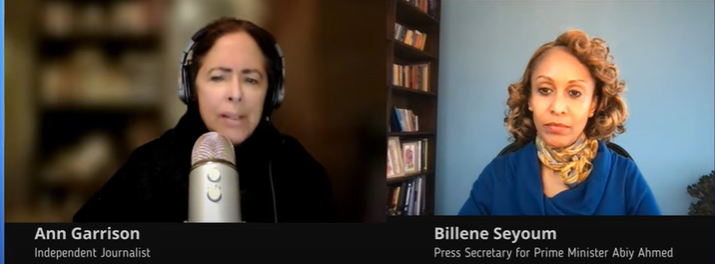 Addis Ababa, January 24/2022 (Walta) – Over the past year, the Ethiopian government has done meticulous jobs to ensure the resilience of the economy and tackle the pressing challenge of food insecurity, the Prime Minister Office Press Secretary said.
Addis Ababa, January 24/2022 (Walta) – Over the past year, the Ethiopian government has done meticulous jobs to ensure the resilience of the economy and tackle the pressing challenge of food insecurity, the Prime Minister Office Press Secretary said.
Press Secretary Billene Seyoum spoke to Pacifica Radio’s Ann Garrison.
While speaking she said that there are different measures that the government is going to be putting in place to end poverty and ensure food security. Many parts of the country are food insecure not because of lack of land and ability for farming, but because the sector has been dependent on subsistence farming for far too long.
Billene further noted that Prime Minister Abiy Ahmed (Ph.D.) and his administration have been greatly committed to modernizing the sector, launching different initiatives. In the past three years, one of the key things that have been for modernizing the sector has been waiving fees and taxes on machinery and spare parts to be used in the sector and modern equipment to farmers enhancing productivity replacing ox driven farming techniques.
As to her, the other key initiative spearheaded by the Prime Minister to ensure food security is the introduction of wheat farming in lowland areas through irrigation systems to shift the predominant focus on highland areas. Now through enhancing irrigation productivity and testing wheat production in lowland areas great success has been demonstrated in the past two years.
The Green Legacy initiative which was introduced by Premier Abiy in 2019 and with a plan to plant 20 billion seedlings within four years has made a progressive encouragement. Planting continues not just for reforestation and afforestation purposes, but also as part of ensuring food security because some of these seedlings that are being planted are also edible plants.
 The Press Secretary pointed out the key hallmark of the current administration championed by the prime minister is to uplift the population of the country and to end widespread poverty. The focus of this administration has been to ensure inclusive equitable and sustainable development with a focus on multiple areas.
The Press Secretary pointed out the key hallmark of the current administration championed by the prime minister is to uplift the population of the country and to end widespread poverty. The focus of this administration has been to ensure inclusive equitable and sustainable development with a focus on multiple areas.
“For example, licenses of some gold miners have been revoked for not paying attention to local communities. Yet over the past year, Ethiopia has gained good foreign currency since then. This has been because of the commitment to ensure that gold mining has become a community-based development program where the grassroots become direct beneficiaries.”
Resources are being utilized equitably nationally and this is something that the government is going to be building upon as the reforms progress. Commenting on Ethiopia’s revocation from AGOA, Billene highlighted that the removal directly affects low-income citizens primarily women who have no relations with the northern conflict, according to the Ethiopian Herald.
“I believe that sanctions are an outdated mode of engagement particularly as countries like Ethiopia are developing and are developed in many aspects. The engagement should be constructive and not a characteristic methodology that predominantly is going to be affecting the most vulnerable sectors of our population”, she remarked.